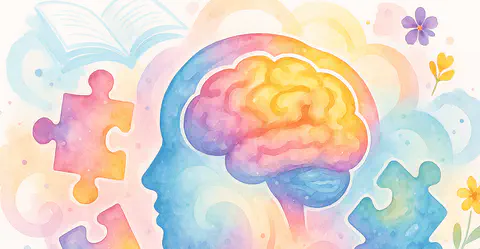Expert Psychoeducational Assessments in Centurion & Middelburg
If your child is struggling at school despite effort, a psychoeducational assessment gives you more than guesses - it gives clarity. As a registered Educational Psychologist, I evaluate how they think, learn, and manage emotions so you can see the full picture and access the right support.
What we assess
We evaluate:
- Cognitive strengths (how they reason, solve problems)
- Academic skills (reading, writing, maths)
- Memory, processing speed, and attention
- Emotional or behavioral factors (how stress or frustration affects learning), if significant, we may recommend individual therapy or TRE for tension release
- Input from parents, teachers, school reports
We break it into child-friendly sessions so your child doesn’t feel overwhelmed. The process is relaxed, often puzzle-based or game-based, depending on their age.
Many parents contact us specifically for what they call an ADHD assessment or Dyslexia test in Centurion or Middelburg. In practice, this happens through a comprehensive psychoeducational assessment that looks closely at attention, executive functioning and learning patterns. We also regularly complete exam concessions assessments for IEB, NSC and Cambridge learners who may need accommodations such as extra time, a reader or a scribe.
What you’ll get
After testing, we prepare a clear, understandable report. Then we sit down with you and explain:
- Where your child shines
- Areas they find challenging
- Practical strategies you can use at home or school
- If relevant, recommendations for exam concessions (extra time, readers, etc.) with documentation that aligns with South African exam board requirements
- Suggested next steps, whether it’s tutoring, specialized dyslexia intervention, therapeutic support, or referral to a specialist
Why this matters
Guessing or patching things without knowing the root cause often leads to frustration. With a proper assessment, you can stop wondering and start helping, with confidence. Many parents feel relief and renewed hope once they understand how their child learns, instead of feeling stuck.
Why choose us
- Ronita is an experienced Educational Psychologist with deep knowledge of South African examination systems
- Our reports and recommendations meet the standards required by schools and exam boards
- We operate in Centurion (Gauteng) and Middelburg (Mpumalanga), giving flexibility for families in both regions
- We combine professional rigour with a warm, supportive approach
Frequently Asked Questions
How much does a psychoeducational assessment cost in South Africa?
Costs vary depending on the complexity and scope of assessment needed. This includes testing sessions, report writing, and a feedback meeting. Contact us for a detailed quote based on your child’s specific needs.
How long does the assessment take?
The full process typically takes 2-3 weeks from first session to feedback meeting. Testing itself is broken into 2-3 child-friendly sessions (usually 1-2 hours each, depending on the child’s age and stamina). We then need about 1-2 weeks to score tests, write the report, and prepare recommendations.
Will my child’s school accept the report?
Yes. Our reports meet South African Department of Basic Education standards and are accepted by schools, exam boards (IEB, NSC, Cambridge), and HPCSA requirements. We provide documentation suitable for exam concessions (extra time, scribes, readers) according to current regulations.
What exam concessions can my child get?
Depending on assessment results, learners may qualify for extra time (up to 100%), use of a scribe or reader, separate venue, enlarged print, breaks, or use of assistive technology. We provide the required documentation and work with schools to implement appropriate accommodations for NSC, IEB, and Cambridge examinations.
Do you assess for ADHD or autism?
We can screen for ADHD and provide a comprehensive psychoeducational assessment that explores attention and learning patterns at our Centurion and Middelburg practices, but formal ADHD or autism diagnoses require additional specialist assessment. If we identify concerns during testing, we’ll refer you to appropriate specialists (psychiatrists, developmental paediatricians, or neuropsychologists) and can provide supporting documentation. For confirmed dyslexia, we offer specialized intervention programs.
Is medical aid coverage available?
Many medical aids cover psychoeducational assessments under the Educational Psychology benefit or PMB (Prescribed Minimum Benefits). We provide invoices with ICD-10 codes for submission. Check with your medical aid about your specific Educational Psychology benefits and annual limits.
What’s the difference between an Educational Psychologist and a clinical psychologist?
Educational psychologists specialize in learning, development, and school-related issues. We’re experts in assessments, learning difficulties, school readiness, and academic interventions. Clinical psychologists focus more on mental health conditions and therapy. For school and learning concerns, an Educational Psychologist is your best starting point.
Ready for clarity? Contact us today to book a psychoeducational assessment at our Centurion or Middelburg office. Let’s work together to give your child a strategy, not just more work.
